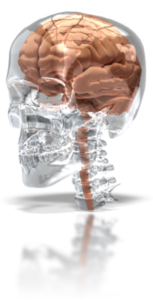
What is a “closed head” injury?
Closed head injuries, also referred to as traumatic brain injuries, are different from open head injuries in that nothing actually penetrates the brain. Instead, a closed head injury is normally caused be a blow to the head. Because of the nature of this type of injury, it is not easily detected. Nevertheless, they are common and very dangerous if not diagnosed. A closed head injury can also result in a concussion, which can have serious consequences, as well.
What is a Concussion?
The medical definition of a concussion is “a mild traumatic brain injury, usually occurring after a blow to the head.” Contrary to what some people believe, loss of consciousness is not required for the diagnosis of a concussion. A concussion can lead to, what is referred to as “post-concussion syndrome,” which describes the common symptoms of a concussion that can last for months.
Symptoms of post-concussion syndrome
Typically, Post-Concussion Syndrome involves headaches, dizziness, memory difficulties, weakness and nausea. These symptoms occur in most people within the first 7-10 days following the initial trauma. They normally subside within 3 months, but can persist as long as a year or more. Other less common symptoms may include impaired attention, fatigue and emotional instability. All of these symptoms can easily be dismissed by health care providers who are unfamiliar with the syndrome.
Other complications following a closed head injury
In addition to Post-Concussion Syndrome, closed head injuries can also lead to Post-Traumatic Amnesia, which is not to be confused with the brief disassociative reactions that many accident victims experience, as their mind attempts to shield them from the traumatic event. A mild traumatic brain injury can cause dysfunction of brain cells, on a more temporary level. More serious traumatic brain injury can result in bruising, torn tissues, bleeding and other physical damage to the brain, which in turn, can result in long-term complications or even death.
Delayed diagnosis of closed head injuries
In many cases, motorcycle accident victims feel well enough to go home following their initial emergency room visit. It may be several days before they visit their family physician. That is typically when the first symptoms begin to occur. All too often, neither the victim, nor the treating physician, will easily make the connection between the motorcycle accident and these new symptoms. This disconnection is what often delays the diagnosis of a closed head injury.
If you have questions regarding motorcycle accidents, or any other personal injury concerns, call the Cottrell Law Office at (888) 433-4861.
Call Today for a Free Consultation (800) 364-8305


